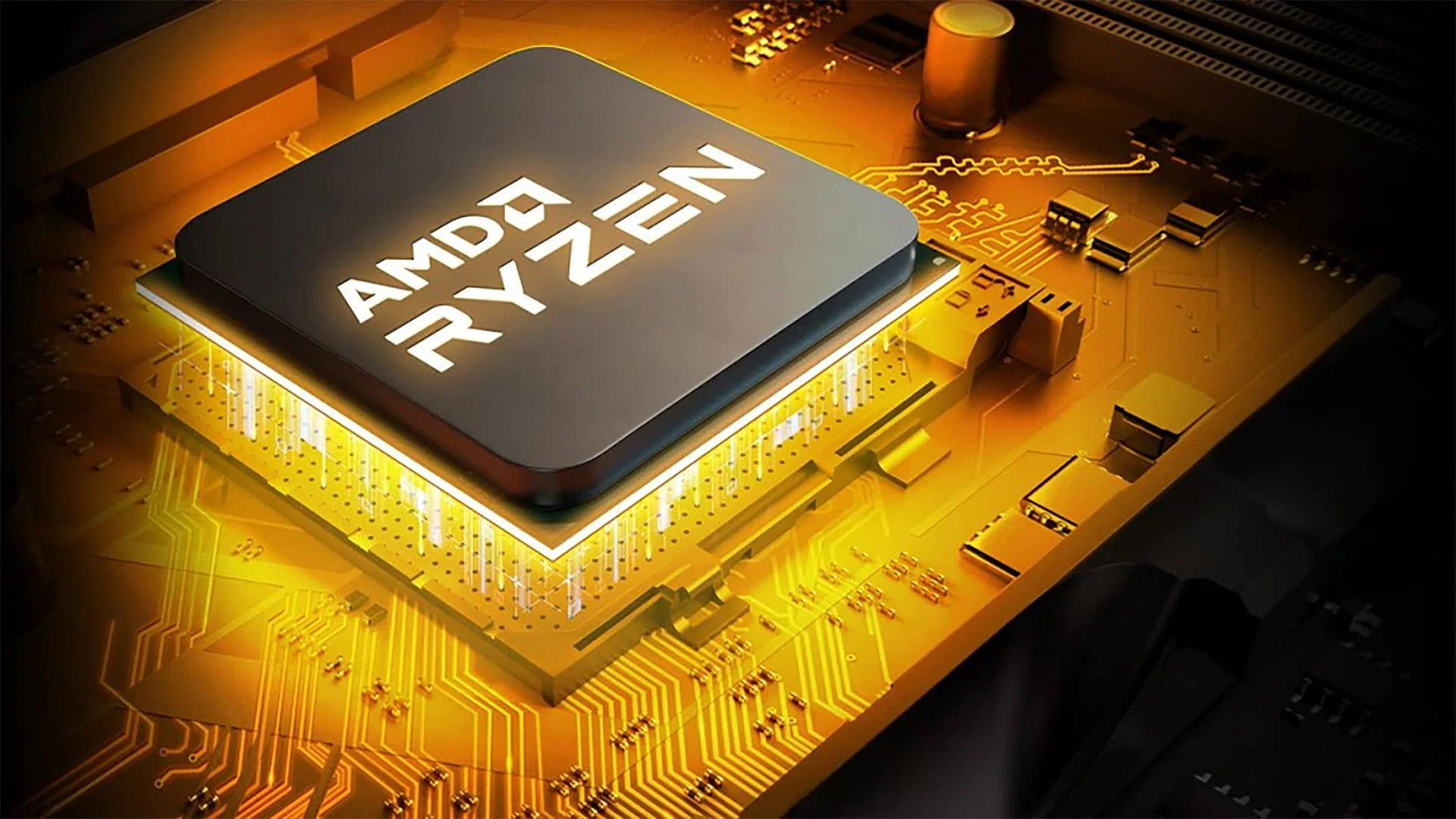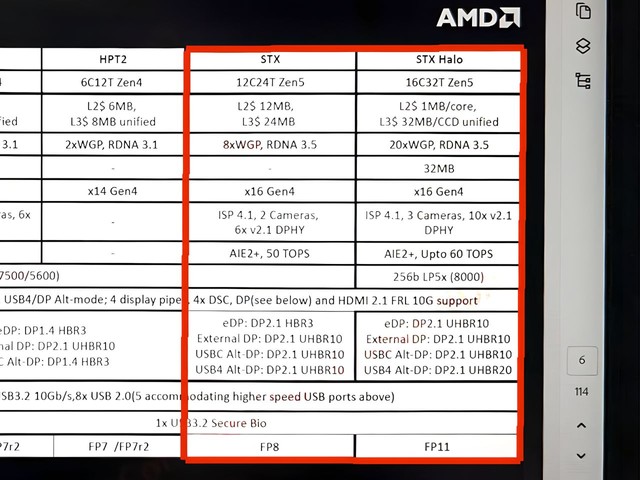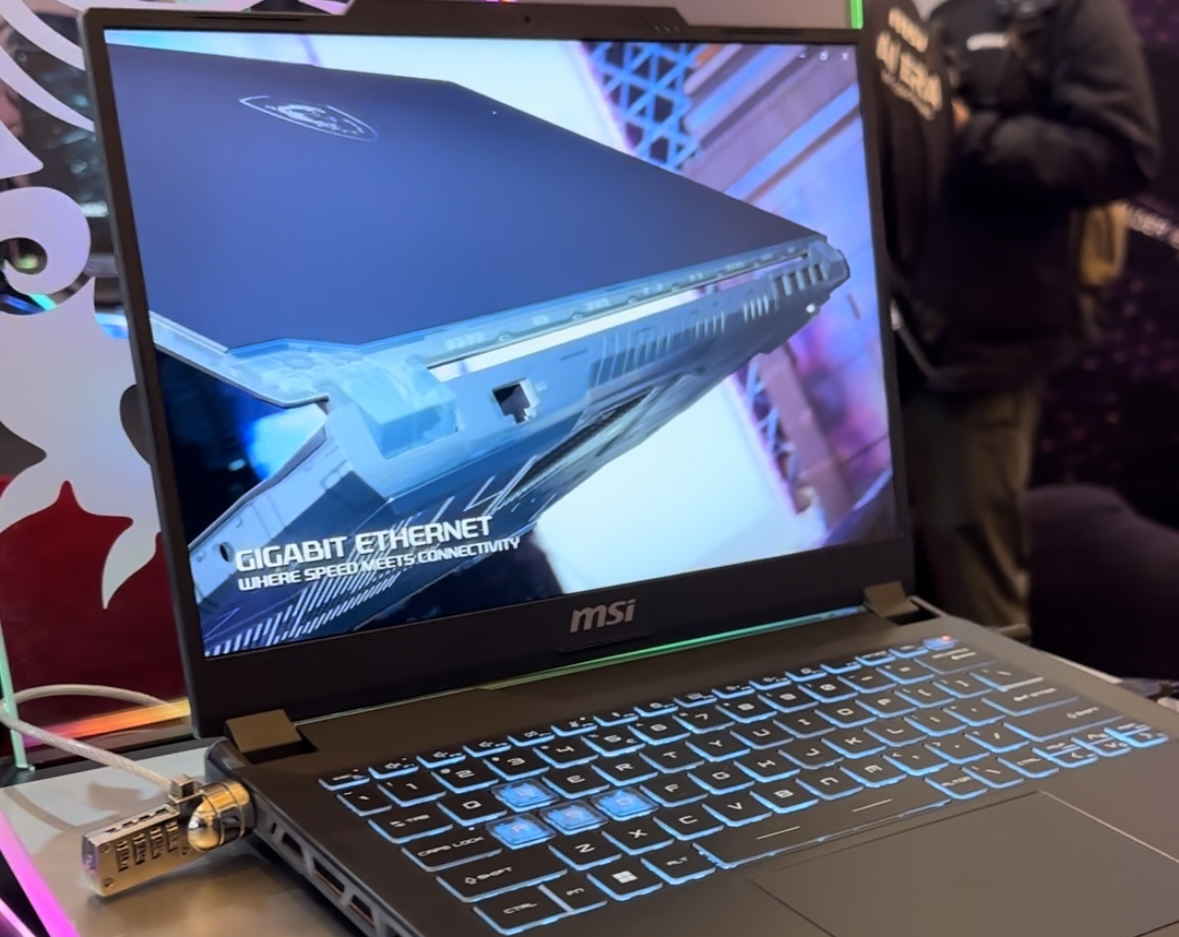AMD Strix Halo APU could make low-end discrete GPUs obsolete — Nvidia's RTX 4060 is on notice
This could be a game-changer for budget gaming laptops!

Sign up to receive The Snapshot, a free special dispatch from Laptop Mag, in your inbox.
You are now subscribed
Your newsletter sign-up was successful
On April 25, an alleged 144-page internal AMD document was leaked on X (archived by HKEPC), giving a wealth of information on the chipmaker's upcoming Strix Point and Strix Halo silicon. If accurate the leaked info suggests AMD could be in a prime position to dominate the cheap gaming laptop market and could leapfrog its competitors in AI PC performance.
Strix Point and Strix Halo are the names of AMD's next-generation Ryzen 9000 series CPUs. These chipsets are a direct follow-up from AMD's Ryzen 8000 series Hawk Point processors, which launched in mid-April.
Strix Point vs Hawk Point — What you need to know

Based on the leaked document, the Strix Point chipsets (STX on the chart) will be based on the Zen 5 CPU architecture and RDNA 3.5 GPU architecture. This is a solid upgrade from the Hawk Point chipset (HPT2 on the chart) which was based on AMD's Zen 4 and RDNA 3.1 architecture.
Strix Point will continue to use a single-chip design with 12 Zen 5 cores and 24 threads, a sizeable upgrade from the Hawk Point chipset's 8 Zen 4 cores with 16 threads. The accelerated processing unit (APU) will also feature 8 WGP (workgroup processors) using RDNA 3.5 architecture, translating into 16 compute units, as the Hawk Point APU featured only 8 RDNA3 compute units. The processor is also slated to utilize the XDNA2 AI accelerator, offering up to 50 TOPS (trillion operations per second) of AI performance, which is more than 3 times faster than Hawk Point's 16 TOPS. Notably, that would also put AMD's chip over Microsoft's next-gen threshold of 40 TOPS to be considered an AI PC.
The Strix Halo chipset (STX Halo on the chart) will feature 16 Zen 5 cores and 32 threads, while the Strix Halo APU will feature two charged-couple devices (CCDs) with 8 Zen 5 cores and will support an XDNA2 AI processor which offers up to 60 TOPS. That's nearly 4 times the AI performance over the current top-tier Hawk Point CPUs.

Strix Halo GPU could outperform the Nvidia RTX 4060
AMD's Strix Halo specs also include information on the APU's 32MB MALL cache on the system on a chip (SoC), which will function similarly to the Infinity Cache on current models. The cache is designed to reduce the use of memory bandwidth and improve GPU performance.
According to HKEPC, "A Taiwanese manufacturer revealed that the Strix Halo GPU The performance is even comparable to the RTX 4060 Laptop, and the NPU computing power can reach up to 60 TOPS." The word of an off-record Taiwanese manufacturer can't be taken as fact, but it does give us some information to speculate on while waiting for the Strix Halo CPUs to launch. If an integrated GPU is capable of outperforming the RTX 4050 or 4060, it could change the budget gaming laptop market as we know it. After all, if the Strix Halo's integrated GPU is capable of keeping up with a lower-tier discrete GPU, that would save a decent amount of space and money on the manufacturing end. So you could find a sub-$1000 gaming laptop that actually hits the 1080p 60 FPS gaming minimum standard.
Sign up to receive The Snapshot, a free special dispatch from Laptop Mag, in your inbox.
Of course, this is just speculation. We'll have to hold off on any grand claims of budget gaming superiority until we can get the Strix Halo chipset into our lab and put the performance claims to the test in our series of gaming benchmark tests.
More from Laptop Mag
- The best AMD Ryzen laptops in 2024
- Lunar Lake leak hints revolutionary integrated graphics for thin and light laptops

A former lab gremlin for Tom's Guide, Laptop Mag, Tom's Hardware, and TechRadar; Madeline has escaped the labs to join Laptop Mag as a Staff Writer. With over a decade of experience writing about tech and gaming, she may actually know a thing or two. Sometimes. When she isn't writing about the latest laptops and AI software, Madeline likes to throw herself into the ocean as a PADI scuba diving instructor and underwater photography enthusiast.









